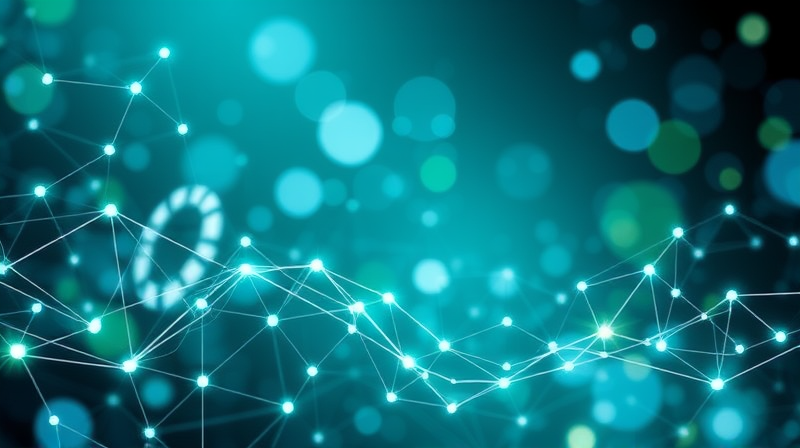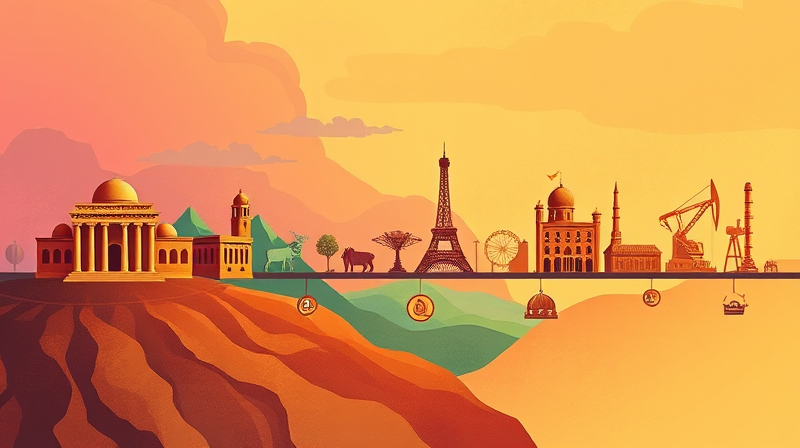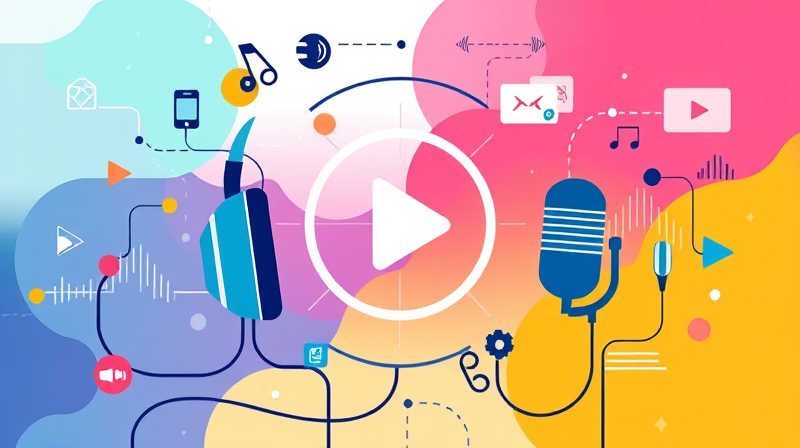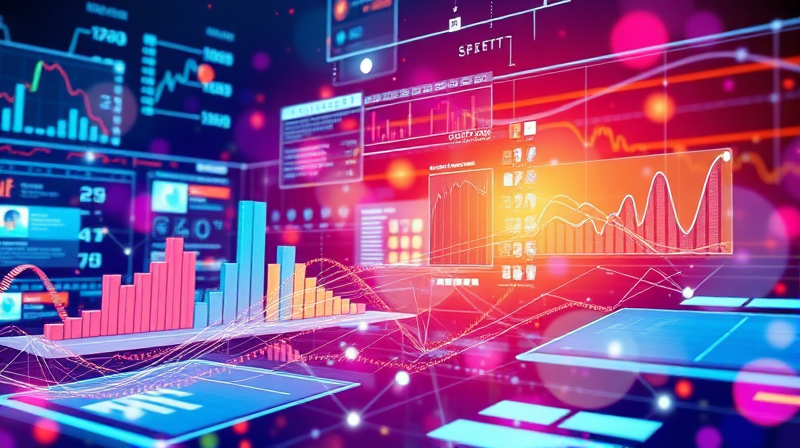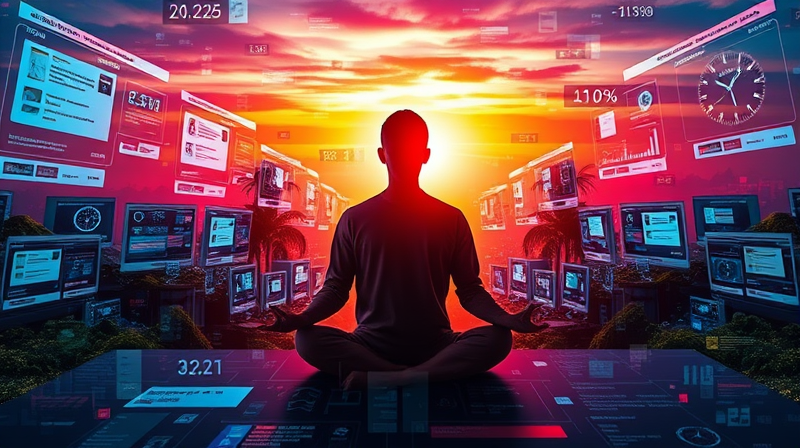In our fast-paced digital era, staying updated without succumbing to the overwhelm of constant data flow is a true art form. With the explosion of news, updates, and alerts from countless channels, it's easy to feel lost in the noise. However, by prioritizing quality sources and adopting smart habits, you can keep yourself informed and balanced.
Set clear goals for what kind of information truly matters to you. Deciding whether you want in-depth analyses on technology, health, or global developments helps tailor your consumption habits. This goal-oriented approach means you are selecting quality over quantity, paving the way for a more productive experience in the information age.
Curate Your Information Diet
First and foremost, it is essential to prioritize quality over quantity. With countless sources shouting for attention, relying on trusted media outlets and reputable publications can prevent you from drowning in unnecessary details. A curated list of reliable sources does wonders for maintaining a clear focus.
Consider these recommendations as you refine your information diet:
- Establish Trustworthy Sources: Choose outlets known for in-depth and verified reporting. This ensures you receive information that not only is relevant but also accurate.
- Utilize News Aggregators: Leverage tools that summarize key insights from multiple reliable sources. These platforms save you time and keep the information manageable.
- Apply Smart Filtering: Use AI-driven aggregators that highlight what matters most, promoting a clearer view of current events and trends.
With these strategies, you not only save time but also protect your mental space from being overloaded with redundant information.
In line with emerging trends, the 2025 landscape is adapting tools that reflect these practices. Many companies now apply AI and automation for efficient data filtering, offering a glimpse into how individuals can also benefit from these innovations.
Set clear information goals by identifying specific areas of knowledge to focus on. For instance, if you need to keep up with advancements in technology, streamline your subscriptions to include only technology news. This clear demarcation helps filter out unnecessary noise and creates a robust framework for continuous learning.
Embrace Technology for Smarter Consumption
Modern technology, especially in the form of AI, plays a monumental role in combating information overload. Today, you have the opportunity to use customized dashboards and automated news aggregators that provide summaries and in-depth insights without the onslaught of trivial details.
Leverage smart tools such as:
- Personalized Dashboards: Set up digital dashboards that provide updates on topics that interest you. These dashboards keep information organized and relevant.
- Automated Summaries: Use AI to receive concise summaries of longer reports, ensuring that the essence of the news is captured without unnecessary details.
- Content Filtering Tools: Implement filters that block sensational or misleading news, letting only the most accurate and polished stories reach you.
These techniques are a game-changer. Automation and personalization help you stay on top of your field without feeling overwhelmed by the sheer volume of data.
Additionally, time management techniques such as the Pomodoro method or scheduled news checking periods can further help maintain balance. By allocating specific time slots for getting updates, you can avoid the pitfall of constant news checking and the inevitable stress it brings.
Maintain Your Knowledge Hygiene
Just as data systems require regular audits and cleaning, your daily information intake demands a similar approach. Regularly reviewing and eliminating subscriptions that no longer serve your purpose is crucial. This process, often referred to as knowledge hygiene, is about ensuring every piece of information you consume adds value.
Think of it this way: periodically cleaning your email inbox or unfollowing sources promoting sensationalism can significantly reduce digital clutter. Embracing these practices means that your brain is not bombarded with unnecessary content that can lead to burnout.
Furthermore, a collaborative approach can also play a significant role. Sharing insights with colleagues or within interest groups allows for a more comprehensive understanding of subjects without the need for everyone to individually sift through vast amounts of data.
Collaboration and knowledge sharing save time and reduce stress, as diverse perspectives often lead to richer, more meaningful insights. This approach keeps you grounded in a community context, ensuring that no one bears the burden of filtering noise alone.
Stay Grounded and Focused
In the midst of rapid information flow, it is vital to stay human-centric. While technology and automation provide excellent support, your own critical thinking is indispensable. Maintaining your ability to critically analyze and assess the credibility of information is key.
Furthermore, be mindful of your emotional response to what's being consumed. Avoid excessive exposure to distressing or sensational news that can lead to anxiety and fatigue. Instead, practice mindfulness or set limits on how much time you spend consuming negative news, ensuring that your mental clarity stays intact.
Remember that being informed isn’t synonymous with knowing every single detail. Distinguish between what is critically important and what is superfluous. Maintaining a balanced perspective is essential for long-term well-being and productivity.
Ultimately, the goal is to curate an information environment that not only keeps you updated but also protects your mental space. By combining strategic filtering, scheduled consumption, and human oversight, you can adeptly navigate the digital age without feeling overwhelmed.
Adopting these methods in everyday life will foster a healthier relationship with news and information. As you harness technology to assist rather than overwhelm, you’ll enjoy the benefits of being well-informed while staying true to your mental and emotional well-being.

